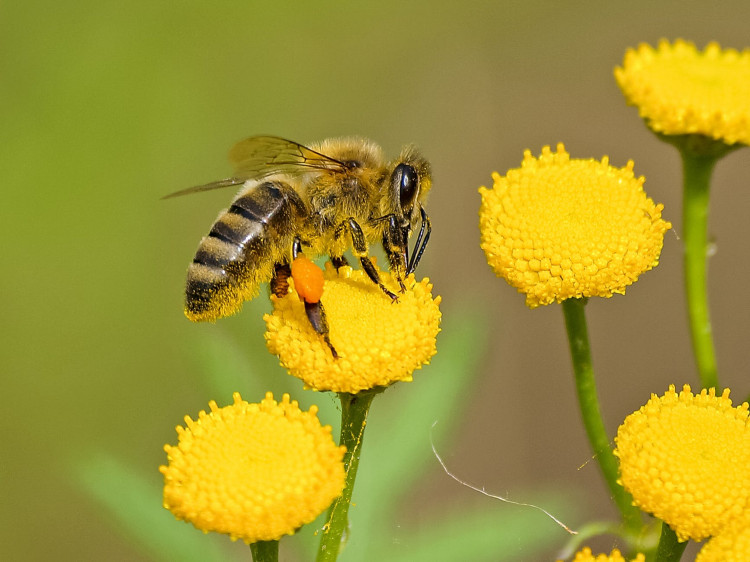This might not always be in the news, but pollinators are some of the most affected animals hit by climate change. Due to the changes in temperature and heatwave, we are experiencing at present; their numbers are gradually declining fast.
In Oklahoma City Zoo alone, the number of the monarch butterfly inside their territory has decreased in large numbers. Just for the past two decades, pollinators inside the area have decreased by about 80%. Given this, the zookeepers are encouraging everyone to extend their help to revive the decreasing number of these insects, as reported by Oklahoma's News 4.
Matilde Boelhouwer, a Dutch designer from Veghel, Netherlands, saw how these insects need her help. Motivated by their decreasing number, she created artificial flowers from screen-printed polyester, which she calls Emergency Food Flowers. "These flowers are a solution for insect population decline we've had over the last 27 years", explains Boelhouwer.
Created under the project she called Food for Buzz, her invention's goal is not just to beautify the surroundings but also to help pollinators live longer especially in urban environments where it is almost impossible for these insects to look for flowers, as stated by Dezeen.
So how does these Emergency Food Flowers work? According to Boelhouwer, these 3D printed flowers are programmed to collect water every time it rains. The rainwater will then be mixed with sugar, which will be used to give these pollinators strength to finish their job for the day.
Boelhouwer further shared she doesn't have a background when it comes to Biology or Urban Planning. She also shared her fears when it comes to insects. But since she understands how important these pollinators are in our environment, she wants everyone to see how she didn't let her weakness and fears stop her from reaching her goal to create these Emergency Food Flowers to help the environment.
Though she created these artificial flowers, the creator said she doesn't have plans to replace real flowers. "My flowers are a source of inspiration that encourages people to think about what they can do to solve the insect population problem," she added.
Pollinators play an important role in the production of fruits, flowers, vegetables, and trees. Without these insects, humans can't produce fruits, vegetables, nuts, and other foods that are essential for everyday needs. Given this reason, it is our responsibility to take care of them. Boelhouwer has already taken the step. How about you?






